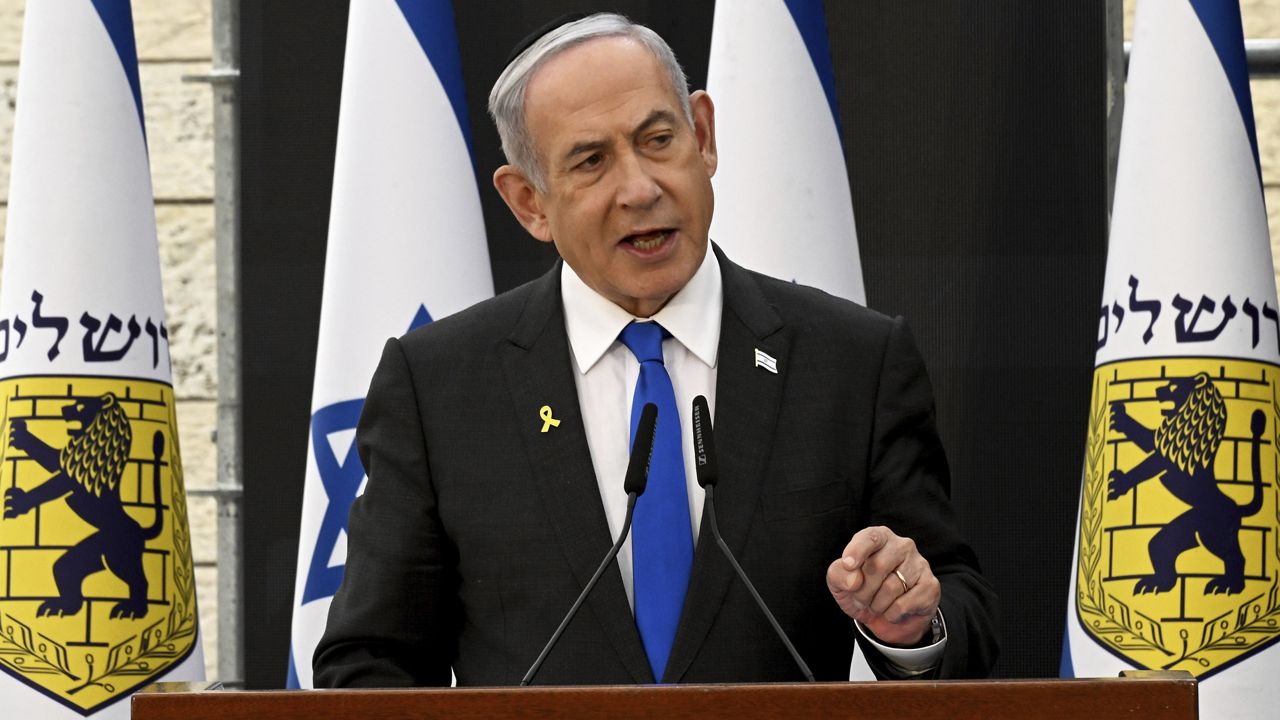Israeli Prime Minister Benjamin Netanyahu says he has not backed down from his goal of destroying Hamas and told his hard-line governing partners that a cease-fire proposal pushed by President Joe Biden would meet that goal, or else Israel would return to war, according to local media.
Netanyahu has faced a backlash from ultranationalists in his coalition who have threatened to bring down his government if he agrees to a deal that would end the war in Gaza without eliminating Hamas.
Biden last week announced a proposal already accepted by Israel that includes an “enduring cease-fire” and Israeli withdrawal from Gaza if Hamas releases all hostages it is holding. The outline released by the Biden administration does not explicitly talk of removing Hamas from governing Gaza or eliminating it. But in a speech Friday, Biden said Israel’s 8-month-old offensive had degraded the militants to a point where they could no longer carry out an Oct. 7 attack.
Netanyahu told the parliament’s Foreign Affairs and Defense Committee on Monday that there are certain “gaps” in Biden’s announcement. “Biden spoke about the outline but not all of the details,” he said during the closed-door session, according to Israeli media. He said that in the Biden plan, there are built-in measures to ensure all sides are upholding the deal before it progresses to the next stage.
“We reserve the right to return to war,” Netanyahu told the committee, according to the media reports.
In a video statement released by his office, Netanyahu said that in efforts to bring back hostages, “we have maintained the goals of the war, first of them the destruction of Hamas.”
“It is part of the proposal,” he said.
The text of the proposed cease-fire deal has not been made public. Hamas has said it views the proposal “positively.”
Talks on a deal ground to a halt last month. The main sticking point has been Hamas’ demand for a complete end to the war and full Israeli withdrawal from all of Gaza in return for all hostages’ release, which Israel has refused.
In its Oct. 7 attack on southern Israel that triggered the war, Hamas-led militants killed around 1,200 people and abducted around 250 others. The Israeli government says militants in Gaza are still holding around 85 hostages and the remains of 39 others.
The Israeli military on Monday said the body of a presumed hostage was found in a community near the Gaza border that Hamas militants had attacked on Oct. 7.
Dolev Yehud, 35, was thought to be among scores of hostages held in Gaza until Monday, when the military announced the discovery of his body and said he had been killed in the initial attack.
His remains were found at Kibbutz Nir Oz, where he lived and worked as a paramedic. Dolev’s wife, Sigal, who was nine months pregnant on Oct. 7, gave birth to their fourth child nine days after the attack, according to Israeli media.
Medical professionals and scientists, including archaeologists, have spent months trying to identify remains found in communities attacked by Palestinian militants in the wide-ranging assault that ignited the war in Gaza.
Israel’s campaign in Gaza has killed more than 36,430 Palestinians, according to Gaza’s Health Ministry. Its count doesn’t differentiate between civilians and combatants.
Palestinian health officials said Israeli strikes killed 11 people overnight into Monday, including a woman and three children, in central Gaza.
A strike on a home in the built-up Bureij refugee camp late Sunday killed four people, including the three children. The second strike, early Monday, killed seven people, including a woman, in the Nuseirat refugee camp.
Both camps date back to the 1948 war surrounding Israel’s creation, when hundreds of thousands of Palestinians fled or were driven out of areas that became part of the new state. The refugees and their descendants make up most of Gaza’s population.
An Associated Press reporter counted the bodies as they arrived at the Al-Aqsa Martyrs Hospital in the central town of Deir al-Balah on Monday and confirmed the details with hospital records.
Israel says it tries to avoid harming civilians and blames Hamas for their deaths because the militant group places fighters, tunnels and rocket launchers in dense, residential areas. The military rarely comments on individual strikes, which often kill women and children.
Also Monday, the Israeli military says it shot down a surface-to-surface missile fired toward southern Israel from the Red Sea.
There were no reports of casualties or damage in Monday’s incident, which set off air raid sirens in the southernmost Israeli city of Eilat.
The military did not specify the missile’s origin, but it was likely fired by Yemen’s Houthi rebels, who have claimed several drone and missile strikes on Israel in recent months. Nearly all the projectiles have been intercepted.
The Iran-backed Houthis have also repeatedly attacked international shipping in the Red Sea, portraying their actions as a blockade of Israel in support of the Palestinians. But most of the ships that have been targeted have no known ties to Israel.



